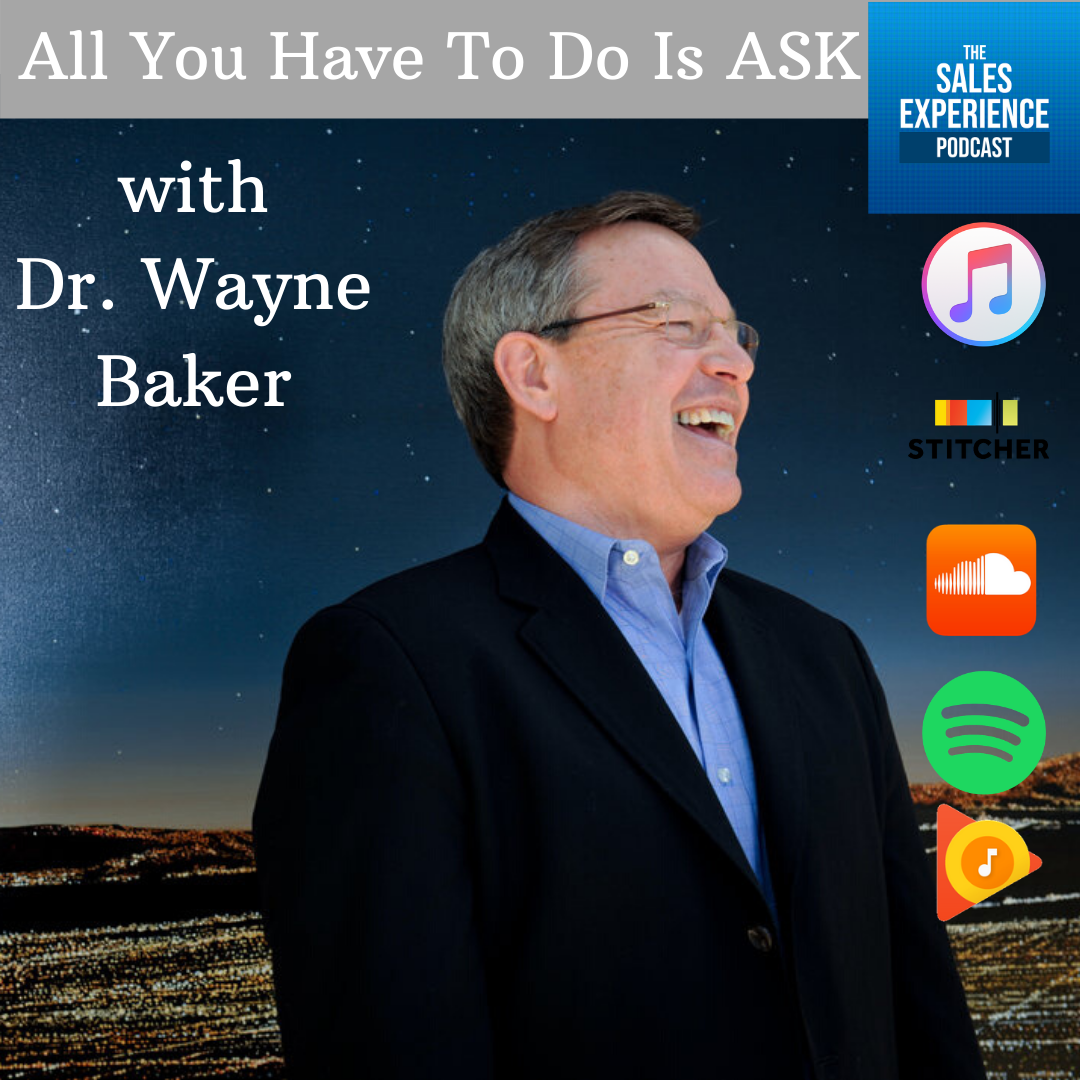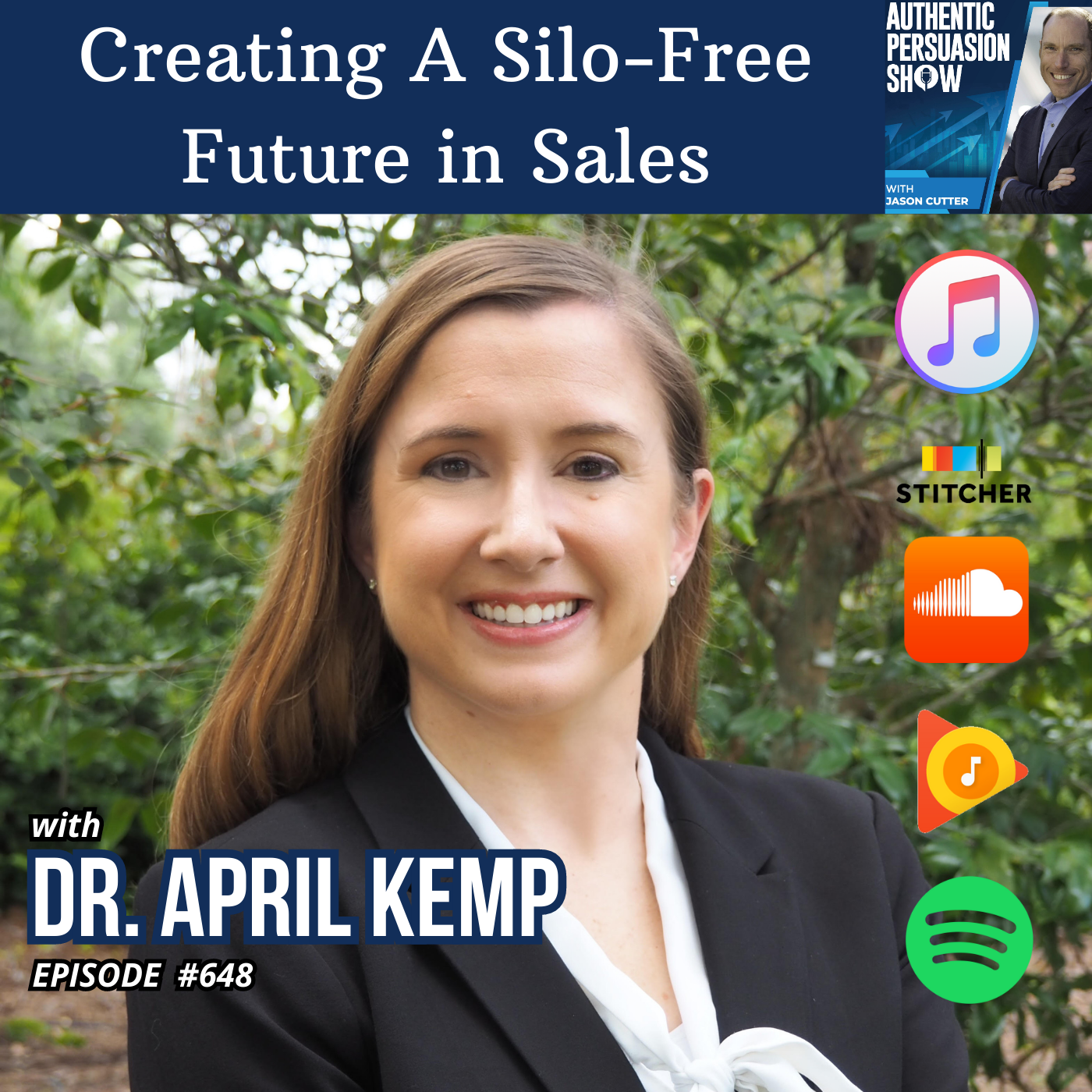Show Notes
Final segment of my conversation with Bob Sager, founder of SpearPoint Solutions, on creativity, profitability, and effectiveness in business and sales.
Some gems from Part 4:
“One way to do that is just with lots of questions instead”
“In today’s world to be successful, you’ve got to be a problem solver.”
“And part of that comes from the scarcity mindset versus abundance mind.”
Download The Power of Authentic Persuasion ebook
Enroll in the Authentic Persuasion Online Course
Get help with your sales team
Connect with Jason on LinkedIn
Connect with Bob on Linkedin
Bob’s Bio
The founder of SpearPoint Solutions, LLC, Bob’s professional background includes over three decades of experience in sales, leadership and training. He uses that experience and innovative thinking to develop business strategies that help organizations get unstuck. He also facilitates training on methods of thinking more creatively that can help any business or nonprofit thrive in the today’s economy. Among other accomplishments, Bob is the inventor of the innovative/creative thinking game, What’s the BIG Idea?™, author of the personal achievement book, Discovering Your Greatness and the book of innovative strategies and how to create them, 101 Freaking Brilliant Business Ideas: And Ten Ways YOU Can Create Your Own. He is also the host and chief innovator of the Out-THINK the Competition podcast.
Bob’s Links
Web site: www.SpearPointOnline.com
LinkedIn profile: www.linkedin.com/in/bobsager
Twitter handle: @Bob Sager
The SpearPoint Solutions company page on LinkedIn: www.linkedin.com/company/spearpoint-solutions-llc
Company page on Facebook: www.facebook.com/SpearPointSolutions
Links to Bob’s books:
Discovering Your Greatness: A Higher Level Thinking and Action Guide
https://www.amazon.com/dp/B0752Q2NXZ
101 Freaking Brilliant Business Ideas: And Ten Ways YOU Can Create Your Own
https://www.amazon.com/dp/B07NQ1X9KP
This book is published by our company. I curated the content and am one of 39 contributing authors.
Living a Wealthy Life: Stories of Gaining an Abundance in All Five Forms of Wealth
https://www.amazon.com/dp/B074TY55M7
Author page (where people can access all my articles) at Valuewalk.com
E211 – Transcript
Jason: Alright. Welcome to the final part of my conversation with Bob. If you haven’t listened to parts one, two and three. Our journey has been all over the place. If you know my show, if you’ve listened to this season 2 especially if you know that I have these questions that I want to ask people. I’m not going to get to them with Bob because our conversation is so great and we kind of finish on a note here talking about abundance, wrapping it in, in there about caring about your prospect, doing it the right way. A lot of themes carry throughout that help you, whether you’re business to business, sales, business to consumer, you’re managing a sales team and you’re trying to find ways to help your team be more effective and manage them to a higher level. Lots of great concepts here. It’s the final part. Enjoy.
Bob: The guy said, if you say it, they doubt it. If they say it, it is the truth. And so I think if you’re good at asking questions that are empathetic with your customer, they’ll lead themselves and a lot of cases to the decision, even though you’re sort of guiding the conversation, they’ll lead themselves so the decision that you’re the right person to do business for them.
Jason: And I love that reminder cause I haven’t thought about that in so long, where people entering into an interaction where they know they’re dealing with a salesperson. Now that salesperson could have any kind of variety of titles. Companies are very creative to try to hide the fact that it’s a salesperson, but it’s actually a salesperson, account executive, sales consultant, like whatever you want to call it. It’s still a sales role. When a prospect enters into that conversation or that interaction, the defenses are up for most of them because they know it’s going to be this battle.
Jason: Or they know the salesperson. The classic model is to use manipulation or to push them into buying even if they don’t want to. And so their defenses are going to be up. And like you said, if I’m a salesperson that I tell you something, those defenses are gonna make you repel that even if I said the sky is blue, you’re going to be like, no, it’s not. Because I know if I agree with you, if the sky is blue then I’m going to have to buy your product or service, you know, or what some of the old school strategies are. Okay, get them to say yes five times or seven times and then it’s a sold deal, right? Like the sky is blue and do you like chocolate? Like whatever it is. And so prospects are just going to disagree and that’s great that you point out.
Jason: One way to do that is just with lots of questions instead so that they’re coming up with the answers, they’re moving themselves towards the finish line. And again, that goes back to what I said, like I don’t focus a lot on closing lines and strategies and techniques because if you guide somebody through that, then it’s done, right? Like the doctor example, the doctor isn’t having to use sales closing manipulative techniques when they diagnose the problem and give you a prescription or the surgery or the therapy or the medication you need. Like it’s like, here you go. Do you have any questions? Great. Now go do it. Right? They’re not like having to, is this something you’re interested in doing today, Bob? If I can find a way to solve this problem for you, would you be interested in signing the contract? No. Like you have a problem, I’m going to solve it. That’s it. And then go on your way.
Bob: Or the classic car sales line “Can I earn your business today?”
Jason: Can I earn your business to do surgery on your leg that’s broken today? Is that something I can do? Is there anyone else who needs to be involved in this decision today Bob? To get your heart issue taken care of, like, no, but, and again, if you shift to that from the classic sales model that we were all taught and out there and you shift to more of that kind of consultative caring, like you said, being empathetic for the person, how do you solve their problem? Then the rest of it just falls in line when it’s supposed to.
Bob: And I think people really do kind of, we alluded to this earlier in this conversation, people really do have a sense, are you just trying to sell me something or do you really legitimately want to solve a problem I have. Yeah, and I think professional salespeople, at least in today’s world to be successful, you’ve got to be a problem solver. That’s it, and you’ve got to care about that client beyond that transaction, right? You’re transaction oriented. You might succeed in a very short term. You’re going to fail in the long term.
Jason: You will because it’s tough to keep up that grind all the time because you’re literally one bad day or one bad week away from just being over, right. If it’s just a pure Hunter model where you only eat what you kill in that moment and there’s no longterm to it, that’s a dangerous edge to walk on for a long term.
Bob: About three times a year I run a business success mastermind group and one of the qualifications for people to be paid part of that is they’ve got to be the kind of people that want to serve their way to success and in order to serve your way to success, the customer in a scenario has to win dramatically bigger than you do, right? Whatever your product or service costs. I mean I get some, I guess a relatively large dollars for consulting with companies and developing strategies for them, but when I look at the net result, how much more are they getting out of it than I do? Cause it ought to be like a total way out of proportion.
Jason: Total home run, slam dunk, where somebody wants to hire you or hire someone like me and it’s literally a no brainer because of the scale of what they’re going to win.
Bob: Right? I mean, David Meltzer, who’s the CEO of sports one marketing he says, it’s the 120 model, I gave you $100 bill, would you give me a 20 back? Would that be okay with you? How many times a day would you like to do that? Right? So that’s the kind of value prop that people ought to have in their business. At least something along those lines, right? Or the customer wins so much bigger than what they’re investing in whatever you’re selling. So I think when you can structure it that way and what are, and that has to be their value of perception, right? And that’s very important because whatever people perceive is the truth to them. So that’s why having those little hinges that swing those big doors is so important because the customer has to receive value that’s surprising and unexpected, right? So that’s a really important mindset and philosophy to have.
Jason: And that helps answer the of how do you sleep at night, especially as a salesperson when you’re giving that kind of return on investment at such a magnitude where it’s a hands down win for every prospect, even if you have to push them forward because you see that the solution is there, you see that they need it based on their answers and you kind of have to make them a little uncomfortable because they’re in their comfort zone. Even when you do that, but it’s for their benefit and then the return is 5 times, 10 times, greater than what they’re going to pay. You can charge them what’s appropriate because you know it’s still gonna win. Cause a lot of people are like, well, you know, I feel bad if I make a lot of money as a sales person. Are you giving a lot of value? Then it doesn’t matter. Again, going back to the doctor example, brain surgeons make a lot of money. What’s the value in the brain surgery that saved somebody’s life, right? Like, you know, what’s the ROI on that? And uh, okay. And no one really questions that no one ever says, Oh, well, you know, brain surgeons make too much, right? No, they don’t. Some people say, Oh, sales people make too much. But if you’re providing solutions and you’re doing it in the right way and you care, then it’s unlimited.
Bob: I think if people have a, you speak to a good point here, people have an issue making a lot of money is because they’re uncertain of the value that they’re bringing. And part of that comes from, you alluded to this a little bit before, the scarcity mindset versus abundance mindset and you know, put together a graphic that I use in an entrepreneurship training that we do and it shows a little, uh, mole Hill. These armies are fighting over. There’s a little territory and that’s a wealth of the world that they perceive. And there’s this gigantic mountain of abundance that they can’t see because there are storm clouds over top of them. I call them the six storm clouds of scarcity just fear, doubt, discouragement, conflict, greed and envy. And only when your thinking rises up above those storm clouds, those scarcity of storm clouds, then all of a sudden you see all this abundance available and you think, How was I ever fighting a war over that a little bit?
Jason: Yeah. Cause now you can see it, right? You see the much bigger picture and all the resources that are available.
Bob: Absolutely.
Jason: That’s a fantastic place to stop because I love that visual and the abundance side. Where’s the best place for people to find you? Anything that you’re doing, the stuff that you’ve published and notes. And the things on creative thinking for anybody and I would love people to just interact with you and all the stuff you’re doing.
Bob: Well I’ll give a couple of resources. If people love created business ideas, strategies, resources, they can listen to my podcast if they’d like. It’s called out-think the competition was available on most major platforms and anchor is the homepage for that. They can find me on LinkedIn. I have links to all the media. Might do write a series of articles for valuebox.com they can find me there. Uh, I mean they can visit our website. They’d like spearpointonline.com. I’m all over Jason.
Jason: That’s awesome. And there’s the creativity ebook that you put together. I forget the title of it. I went through it. It was amazing stuff. I was starting to put some of that in place in the business. What is that called then? Where’s a good place to get that?
Bob: It’s called seeing the invisible so you can do the impossible. If somebody messages me on LinkedIn that will probably be the best way to get and say, look, I want a copy of your ebook. Jason said it’s amazing. And there were a couple of books of mine on Amazon as well. If they request that seeing the invisible guide, there’ll be links to them in there and so they can find them there.
Jason: And not a promotional, not a paid product placement. You’re not paying me to say this or giving me any cut of the free ebook that you send out.
Jason: But I know for myself, like I said earlier, I’ve always thought like creativity was the arts and music and whatnot. And then reading that ebook and going through just helped me also just see other ways to be creative and what means to be creative and you know how to apply that to different things. So please anyone listening to this, reach out to Bob, read that. It’s got a lot of workbook type stuff in there and things to think about and activities. So yeah, that one’s great. So I appreciate all that work you’re doing Bob, both for the creative side but then also the fun shops and getting people to be innovative, not just with the technology piece but using their brains. So I appreciate that.
Bob: That’s the greatest supercomputer in the world.
Jason: It’s true. It’s been around for quite some time.
Jason: Well Bob, so thank you for being on the show, Bob. I appreciate it. And for everyone listening, there will be all of his links in the show notes and the transcription. And again, Bob, thanks for being on. And for everyone listening, if you want to catch the full transcript of this and all of the episodes, make sure to subscribe everywhere that podcasts are available. And you can go to cutterconsultinggroup.com/podcast to find the transcripts and everything on there. As always, keep in mind that everything in life is sales and people remember the experience you gave them.
![[E211] Higher Level Thinking with Bob Sager – Part 4 of 4](https://episodes.castos.com/salesexperiencepodcast/images/TSEP-Bob-Sager-Cover-Image.png)


